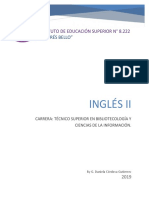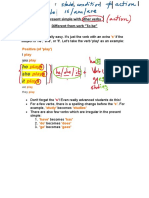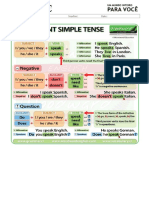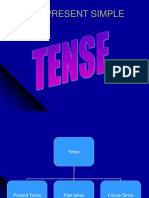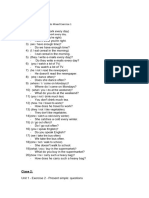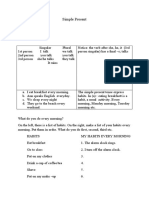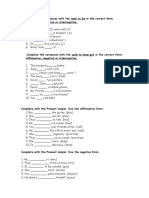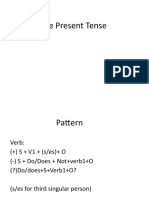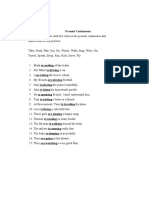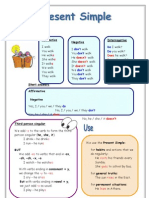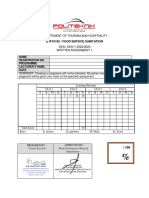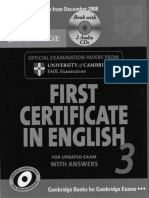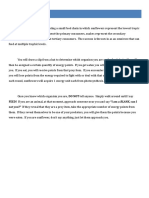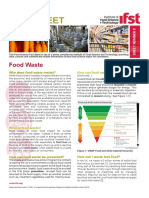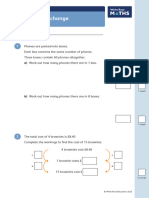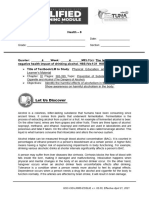0% found this document useful (0 votes)
11 views6 pagesPresent Simple - Lesson & Exercises
The document provides a comprehensive overview of the present simple tense, including its usage for habits, permanent situations, instructions, and general truths. It outlines the affirmative, negative, and interrogative forms of verbs, along with examples and exercises for practice. Additionally, it includes personal routines of individuals to illustrate the application of the present simple tense in everyday contexts.
Uploaded by
kiruafeitan77Copyright
© © All Rights Reserved
We take content rights seriously. If you suspect this is your content, claim it here.
Available Formats
Download as PDF, TXT or read online on Scribd
0% found this document useful (0 votes)
11 views6 pagesPresent Simple - Lesson & Exercises
The document provides a comprehensive overview of the present simple tense, including its usage for habits, permanent situations, instructions, and general truths. It outlines the affirmative, negative, and interrogative forms of verbs, along with examples and exercises for practice. Additionally, it includes personal routines of individuals to illustrate the application of the present simple tense in everyday contexts.
Uploaded by
kiruafeitan77Copyright
© © All Rights Reserved
We take content rights seriously. If you suspect this is your content, claim it here.
Available Formats
Download as PDF, TXT or read online on Scribd
/ 6


